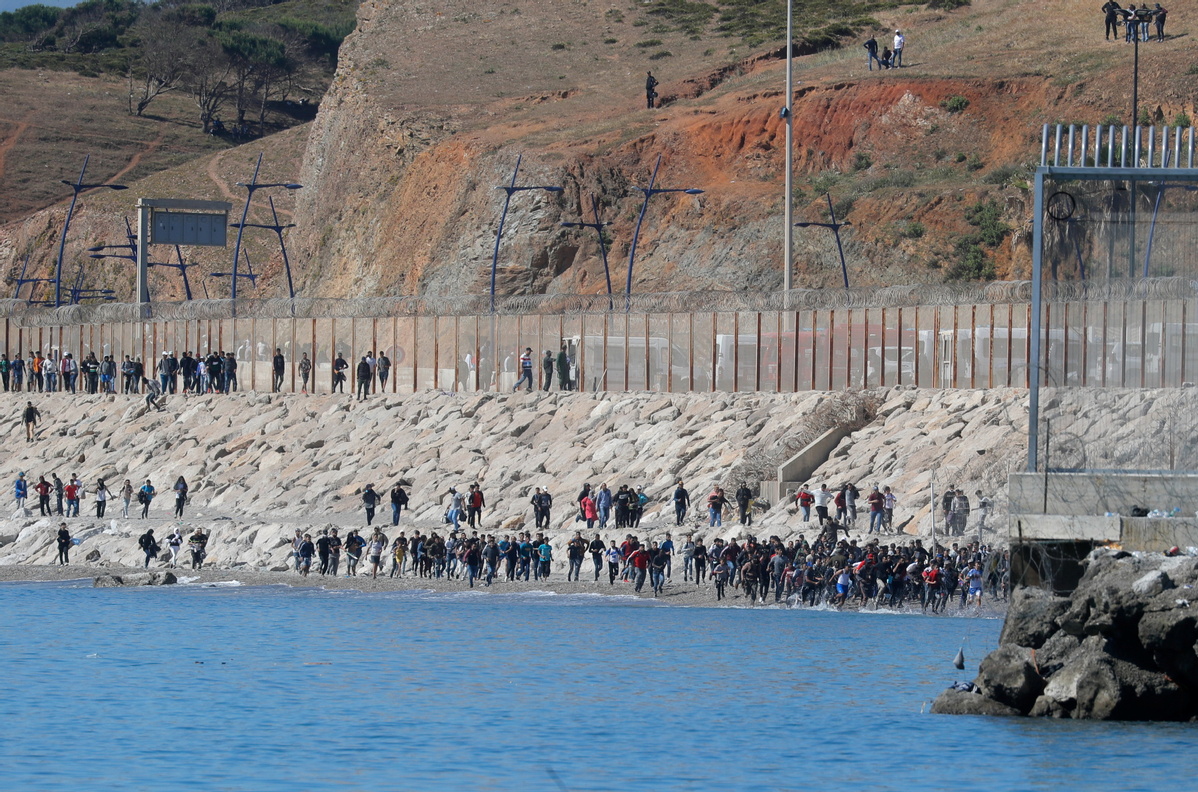Spain hits out at Morocco over migrants


Tensions are continuing to rise between Spain and Morocco after thousands of migrants were allowed to enter the Spanish enclave of Ceuta in North Africa.
Ceuta, which has a population of around 85,000, shares a land border with Morocco and earlier this week, 8,000 migrants, around one-quarter of which are thought to be minors, entered the territory, many of them by using inflatable boats or swimming to get round the breakwater that marks the frontier between Morocco and the Spanish territory.
Relations between the two sides were already strained because of Spain's decision to allow a leader of the Western Sahara independence movement, an area over which Morocco claims sovereignty, to receive treatment for COVID-19 in the country.
On Tuesday, Morocco's ambassador to Spain was recalled to Rabat while the country had what a diplomatic source told the Reuters news agency was a moment of "contemplation" about its relations with Spain.
Spain initially responded to the surprise influx of migrants by strengthening police patrols with army reinforcements, since when Prime Minister Pedro Sánchez has visited the area, promising that anyone who should not be in Ceuta would be "immediately returned", according to the terms of a bilateral agreement between the two countries.
"This sudden arrival of irregular migrants is a serious crisis for Spain and for Europe," said Sanchez.
"I believe firmly that Morocco is a partner country, it's a country that is a friend of Spain and it should continue this way. To be effective, this cooperation needs to always be based on respect. Respect for mutual borders."
Ceuta and another territory, Melilla, have remained in Spanish hands since Morocco gained independence in the 1950s. They are the only two parts of the European Union that share borders with Africa, which has made them into regular targets for people trying to gain access to the EU.
Speaking on Spanish radio, the European Commissioner for the European Way of Life, Margaritis Schinas, said that the EU stood behind Spain and that it would "not be a victim of these tactics."
"Ceuta is Europe, this border is a European border and what is happening there is not Madrid's problem, it is the problem of all," he said.
EU Commissioner for Home Affairs Ylva Johansson has also called upon Morocco to bring an end to what she called "irregular departures" from its territory, which had been on-going for some time.
"No one can intimidate or blackmail the European Union," said Schinas, adding that there had been "some attempts by third countries...over the last 15 months to instrumentalize" the topic of migration, picking out Turkey by name.
Earlier this month, Morocco's Foreign Minister Nasser Bourita said Spain's behavior over the issue was putting relations between the two countries at risk, and said that Morocco refused to be "the policeman" of the EU on migration.

































